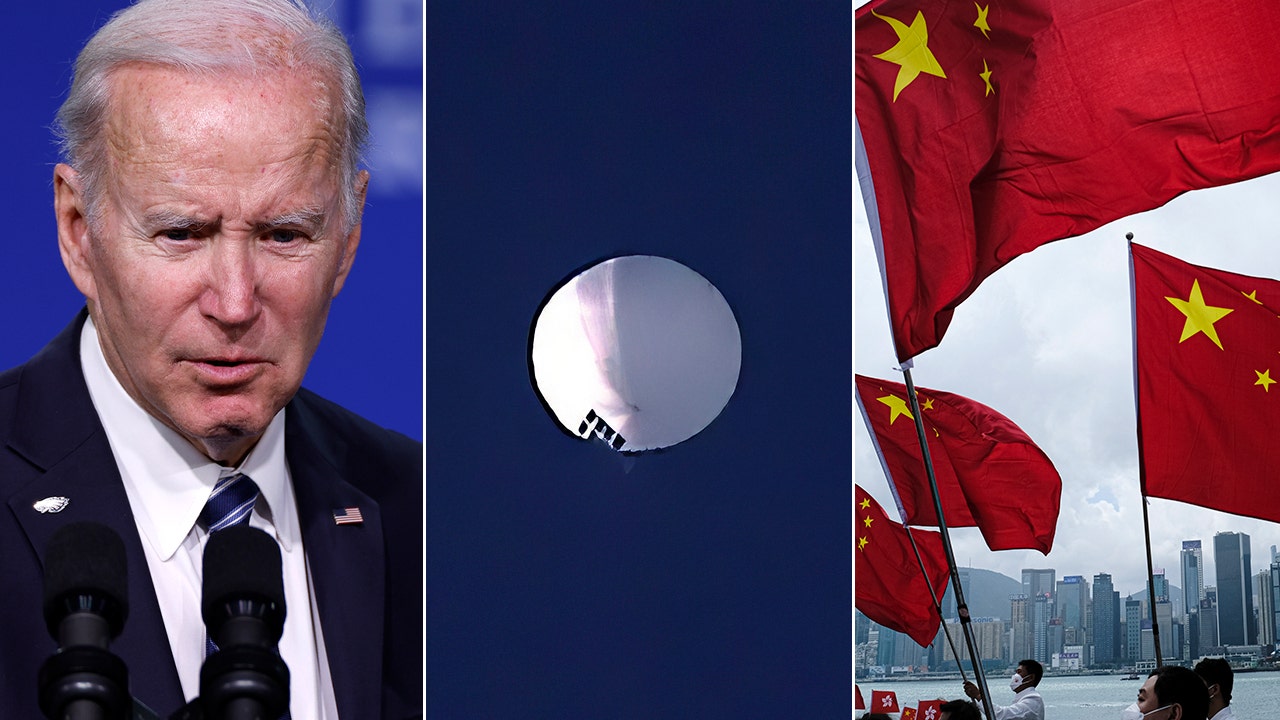Biden admin held private talks with Beijing on Chinese spy balloon

State Department officials from the Biden administration engaged in private discussions with their Beijing counterparts regarding a Chinese spy balloon that breached U.S. airspace in 2023, and the potential impact its publicity could have on U.S.-China relations, according to sources from the previous Trump administration.
The discovery of the spy balloon infiltrating U.S. airspace was made on Jan. 28, 2023, with an Air Force fighter jet successfully taking it down off the coast of South Carolina on Feb. 4, 2023, just two days after the Pentagon issued a statement on the incident. Subsequently, Biden administration officials held talks with Beijing on Feb. 1, 2023, to address the balloon and debated the repercussions of disclosing the incident to the public on the relationship between the two nations, internal State Department documents revealed.
According to sources, Secretary of State Antony Blinken emphasized during the discussions that publicizing the presence of the spy balloon could have “profound implications” for the U.S.-China relationship, particularly at a time when efforts were being made to stabilize bilateral ties. The internal readout further indicated that the revelation of the balloon’s existence could have complicated Blinken’s scheduled travel to China in early February 2023, leading to the postponement of the trip to June 2023.
A former Biden administration official confirmed that the State Department had summoned a senior Chinese diplomat to notify China about the spy balloon and issue a warning regarding potential actions to eliminate the threat. The official also emphasized the urgency of resolving the situation promptly to prevent the balloon’s exposure to the public, which could escalate the challenges of managing the issue.
On Feb. 2, 2023, the Pentagon officially acknowledged the detection of a “high-altitude surveillance balloon,” clarifying the nature of the Chinese incursion into U.S. airspace. While the White House had been briefed on the situation earlier, criticism arose regarding the delay in publicly addressing the incident and the time taken to shoot down the spy balloon.
Senator Marco Rubio, then a vocal critic of the Biden administration’s handling of the spy balloon debacle, condemned the delay in informing the public and emphasized the necessity for presidential communication on such matters. The eventual shooting down of the spy balloon by an Air Force F-22 Raptor fighter jet was deemed necessary to safeguard U.S. sovereignty, as the Pentagon confirmed the balloon’s deliberate surveillance intent.
Following the incident, concerns were raised about potential civilian risks posed by debris from the downed balloon. However, the Pentagon assured that measures were taken to minimize such risks, with President Biden authorizing the mission to take down the spy balloon without endangering civilians in its path.
Despite the initial concerns, investigations later revealed that the Chinese spy balloon did not collect any sensitive information during its journey across U.S. airspace. Blinken, who is currently affiliated with CAA Speakers, refrained from commenting on the matter, while a spokesperson for President Biden did not provide immediate feedback on the issue.
In conclusion, the spy balloon incident underscored the complex dynamics of U.S.-China relations and the challenges of managing such sensitive matters in the realm of national security and diplomacy.




